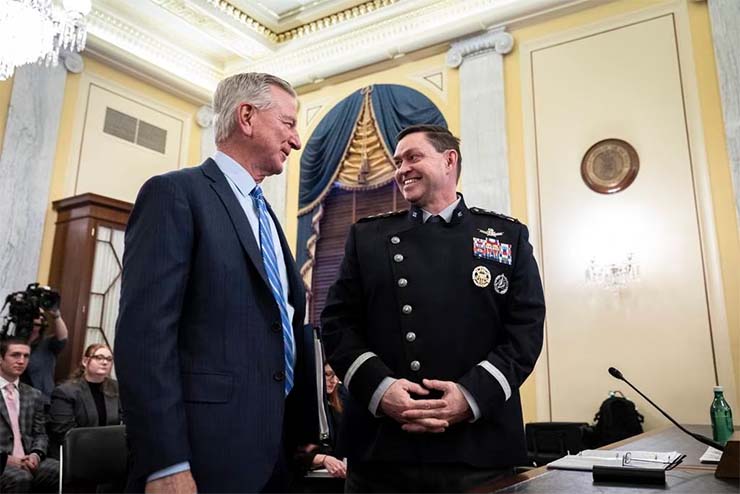
Washington: A blanket hold by a lone US senator on all high-level military promotions could prevent the confirmation of as many as five of the nominees to serve as the president’s most senior military advisers.
Five members of the joint chiefs of staff — including Gen. Mark Milley, the chairman — are required statutorily to leave their posts within the coming months, starting in July. Meanwhile, most of the vice chiefs — many of whom are the nominees or favourites to replace the chiefs — are preparing to assume leadership of the services amid the Senate impasse.
Sen. Tommy Tuberville, is doubling down on his blockade of military confirmations. He said the looming vacancies will not prompt him to back down from his ongoing hold on hundreds of military promotions, including the joint chiefs.
“If they’re worried about readiness, they need to go back to their old policy and we’ll get it done,” Tuberville said. “But they’re more worried about social programs than they are LAP about military readiness.”
The senator imposed his blockade in February to protest the Pentagon’s new policy that provides leave time for troops to travel to receive abortion services if they’re stationed in states where it’s now illegal.
The first service chief vacancy will occur when Marine Corps Commandant Gen. David Berger steps down on July 10, commencing a steady stream of exits from the joint chiefs through October. Army Chief of Staff Gen. James McConville must step down next on August 8, followed by Chief of Naval Operations Admiral Mike Gilday shortly after on August 21.
President Joe Biden nominated Air Force Chief of Staff Gen. CQ Brown as the next joint chiefs chairman, replacing Milley, who must depart by early October, and creating another opening at the top of the Air Force.
“There’s no playbook for this,” Arnold Punaro, a former staff director on the Senate Armed Services Committee, said. “This is really a time for regular order, and not the chaos and uncertainty that we see in the system right now.”
The tumult sends a terrible message about the seriousness with which the United States takes its military promotion process, he said.
“It sends a sign of weakness to the rest of the world, that we can’t get our work done on time, and that we’re involved in political chaos,” Punaro said. “This has nothing to do with the individuals involved. We want the young officers, and up-and-coming commanders to see that the military promotion system is based on merit and [who is] best qualified.”








